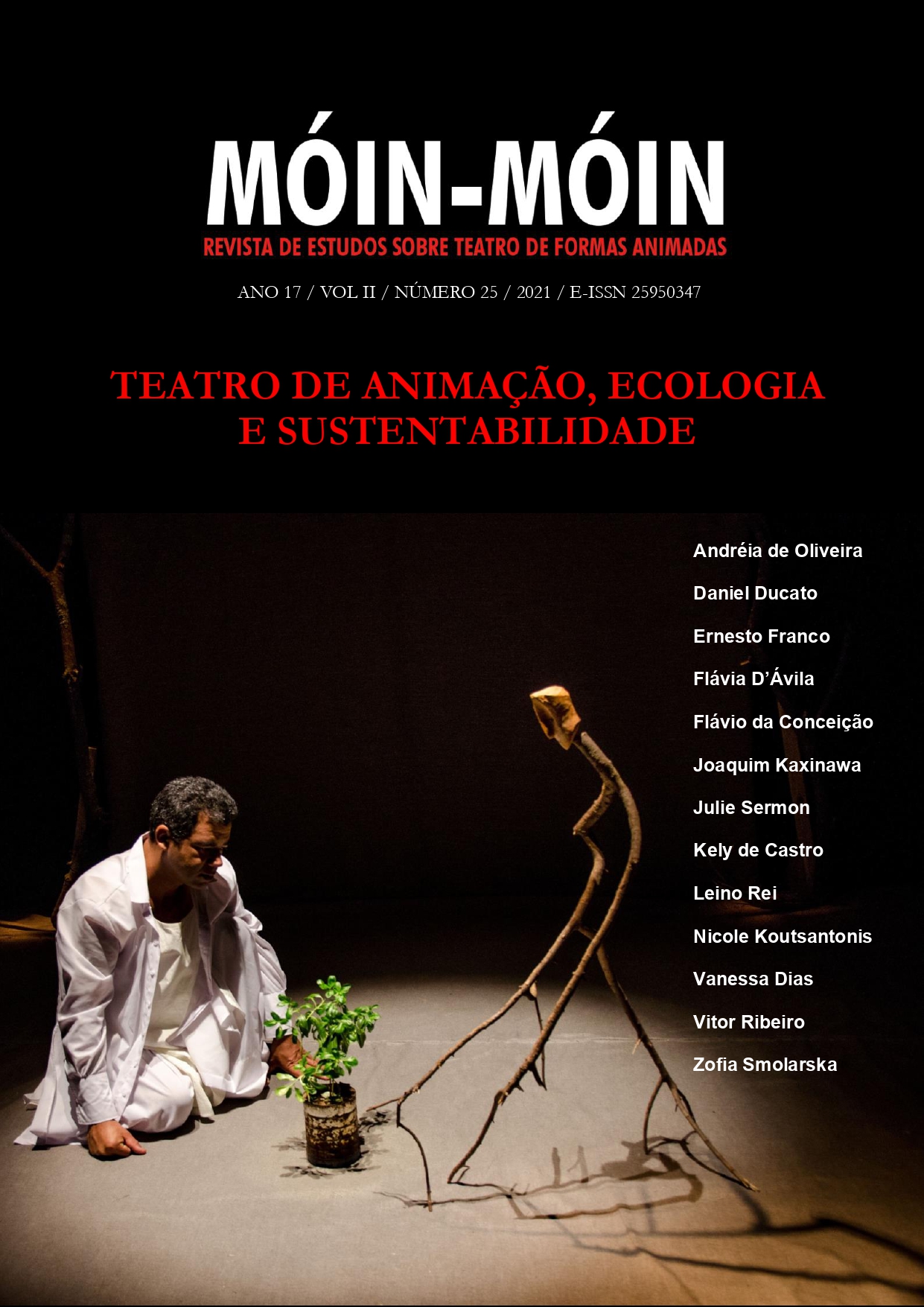Tossed on the seas of Visual Theatre: challenges to Puppetry’s survival as an independent discipline
DOI :
https://doi.org/10.5965/2595034702252021240Mots-clés :
Theater of Animated Forms, Puppet Theater, Visual Theater, EducationRésumé
The goal was to understand the current situation and give an overview of Baltic and Nordic countries' puppet theater and puppet theater training traditions and whether and how the puppeteer's profile has changed recently. To get an idea of the trends in this area, the common ground of the different countries, I interviewed theatre makers from Finland, Sweden, Norway, Latvia, Lithuania, and Estonia. The title of this research is "Tossed on the seas of visual theatre: challenges to puppetry’s survival as an independent discipline."
To have a wider look at the puppetry, I also did two additional interviews. One of them with Marek Waszkiel - "Puppetry's challenges in the new visual theatre paradigm" and another one with Russian director Yana Tumina - "The puppeteer in the 21st century".
Téléchargements
Références
HELGESEN, A. (2021). Interview conducted in written form. Tallinn, 13 April.
JUŠKĖNAS, V. (2021). Interview conducted in written form. Tallinn, 5 May.
NILSSON, H. (2021). Interview conducted in written form. Tallinn, 6 April.
PÖYHÖNEN, M. (2021). Interview conducted in written form. Tallinn, 13 April.
ŠOLIS, Ģ. (2021). Interview conducted in written form. Tallinn, 13 April.
TÕNISSON, T. (2021). Interview conducted in written form. Tallinn, 23 April.
Téléchargements
Publiée
Comment citer
Numéro
Rubrique
Licence
(c) Tous droits réservés Móin-Móin - Revista de Estudos sobre Teatro de Formas Animadas 2021

Ce travail est disponible sous la licence Creative Commons Attribution 4.0 International .
Ao submeter um artigo à Móin-Móin Revista de Estudos Sobre Teatro de Formas Animadas e tê-lo aprovado os autores concordam em ceder, sem remuneração, os seguintes direitos à Revista: os direitos de primeira publicação e a permissão para que a Revista redistribua esse artigo e seus metadados aos serviços de indexação e referência que seus editores julguem apropriados.
Os artigos cujos autores são identificados representam a expressão do ponto de vista de seus autores e não a posição oficial da revista Móin-Móin.
Plágio, em todas as suas formas, constitui um comportamento antiético de publicação e é inaceitável. A Revista Móin-Móin reserva-se o direito de usar software ou outros métodos de detecção de plágio para analisar os trabalhos submetidos.
![]()
Este obra está licenciado com uma Licença Atribuição-NãoComercial 4.0 Internacional






